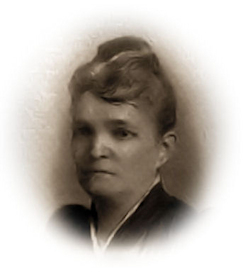Jan. 2, 1862.—I am glad enough to bid ‘61 goodbye. Most miserable year of my life! What ages of thought and experience have I not lived in it.
Last Sunday I walked home from church with a young lady teacher in the public schools. The teachers have been paid recently in “shin-plasters.” I don’t understand the horrid name, but nobody seems to have any confidence in the scrip. In pure benevolence I advised my friend to get her money changed into coin, as in case the Federals took the city she would be in a bad fix, being in rather a lonely position. She turned upon me in a rage.
“You are a black-hearted traitor,” she almost screamed at me in the street, this well-bred girl! “My money is just as good as coin you’ll see! Go to Yankee land. It will suit you better with your sordid views and want of faith, than the generous South.”
“Well,” I replied, “when I think of going, I’ll come to you for a letter of introduction to your grandfather in Yankee land.” I said good-morning and turned down another street in a sort of a maze, trying to put myself in her place and see what there was sordid in my advice.
Luckily I met Mrs. B. to turn the current of thought. She was very merry. The city authorities have been searching houses for fire-arms. It is a good way to get more guns, and the homes of those men suspected of being Unionists were searched first. Of course they went to Dr. B.’s. He met them with his own delightful courtesy. “Wish to search for arms? Certainly, gentlemen.” He conducted them through all the house with smiling readiness, and after what seemed a very thorough search bowed them politely out. His gun was all the time safely reposing between the canvas folds of a cot-bed which leaned folded up together against the wall, in the very room where they had ransacked the closets. Queerly, the rebel families have been the ones most anxious to conceal all weapons. They have dug pits quietly at night in the back yards, and carefully wrapping the weapons, buried them out of sight. Every man seems to think he will have some private fighting to do to protect his family.
Note: To protect Mrs. Miller’s job as a teacher in post-civil war New Orleans, her diary was published anonymously, edited by G. W. Cable, names were changed and initials were generally used instead of full names—and even the initials differed from the real person’s initials. (Read Dora Richards Miller’s biographical sketch.)
